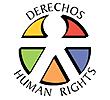 |
|
 |
| Index | E-mail | Resources |
June 1998 |
 |
|
 |
| Index | E-mail | Resources |
June 1998 |
The UN High Commissioner for Human Rights Site
Without Impunity will highlight on every issue a human rights website that is of considerable use for human rights activists and professionals alike. The web can be a tremendous tool for obtaining and disseminating human rights information, and a number of international bodies, educational institutions and non-governmental organizations have created sites that make all our work much easier. Derechos publishes a list of links to the most important websites at http://www.derechos.org/human-rights/links/
The website of the UNHCHR is one of our favorites because of the sheer amount of quality information it contains. Simply put, if you are looking for UN information on human rights, you must visit it. Now available in English, Spanish and French (though many documents are only available in English), the website contains most of the reports and resolutions issued since 1993 by the UN Commission on Human Rights, the Sub-Commission on Prevention of Discrimination and Protection of Minorities, the special rapporteurs and working groups and the treaty monitoring bodies as well as the OHCHR itself. In addition, it contains information about the workings of the UN human rights system and the different human rights bodies (including very useful calendars of events and membership lists), human rights documents and treaties and, in honor of the 50th anniversary of the Universal Declaration of Human Rights, copies of the Declaration in a great variety of human languages (including in 10 different versions of Quechua!!).
The website is updated almost daily, with the most current news and statements from the different UN bodies, which are conveniently presented on the main page of the site. Visiting the site weekly is a great way of keeping up with the going ons of the UN human rights system.
If you are looking for information from a specific UN body, click on the Programme link on the left menu on the main page. From there you can find links to each human rights body - the special rapporteurs and working groups can be found under “Extra-conventional mechanisms” in the Programme page. If you are looking for information by country, your best bet is to go to the “Treaty body” database, also from the main menu. If you then click on “Documents” and then on “by Country” you can find the reports issued on that specific country by the different treaty bodies and Special Rapporteurs. However, the Treaty Body Database does not include documents by the Commission or Subcomission - to find those you’ll have to go to their own pages (as indicated above) or use the search feature.
The search feature ( is probably the most confusing part of the site - it is a very imperfect tool, and the UNHCHR would do well to replace it with a better one. Users are given the choice to do either “concept” base searches of the entire site, or search the Treaty Body Database. Concept searches are easy enough to make - you just write the word(s) you are looking for and enter any boolean indicators you may want - but the results are by no means comprehensive, and the “confidence” ratings (how relevant the document is to your search) seem to be completely arbitrary. However, it’s a useful tool when you want to know what some of the most important documents related to an issue are. The Treaty Body Database search engine was once again broken at the time of this review, but in general suffers from the same limitations as the concept search, in that documents from the Commission and Subcommission are excluded.
While the usefulness of the UNHCHR site should be obvious to researchers and groups and people who directly work with (or on) the UN, it should not be lost on human rights NGOs and activists either. NGOs can use the site to track down what the different UN bodies have said about their governments, and use the information to push them towards compliance. In addition, they can use the site to keep track of when reports by their countries to different bodies are due - to get copies of such reports and prepare their own responses for submission. Activists and researches would do well to use the site to search for information on human rights that they can use in their work - the UN puts out an incredible amount of information, some on rather esoteric human rights topics, and much of it is available online.
The OHCHR must be congratulated for its work on this site and we know you’ll find it useful.